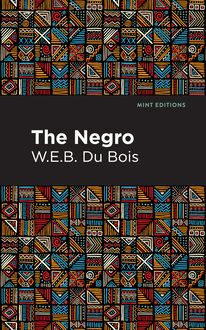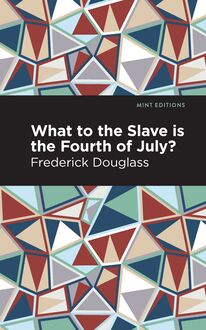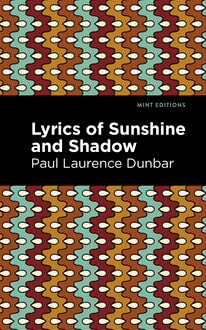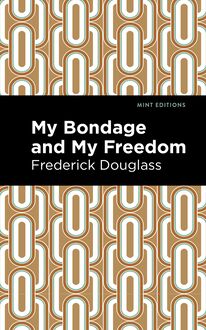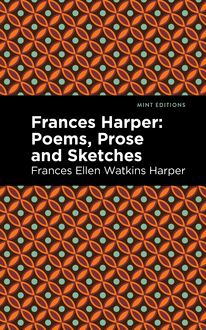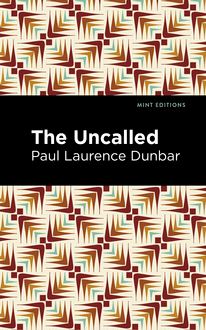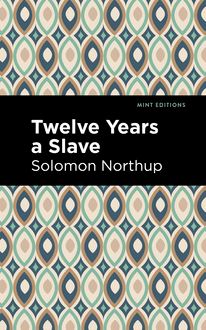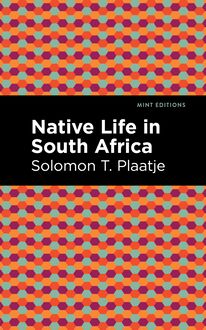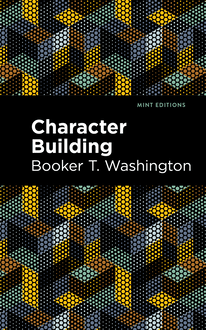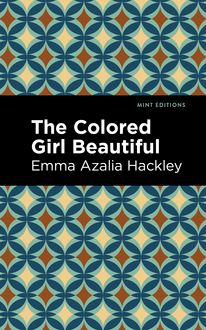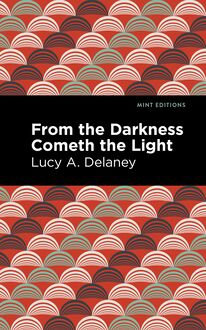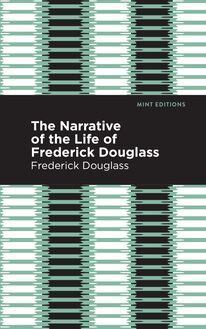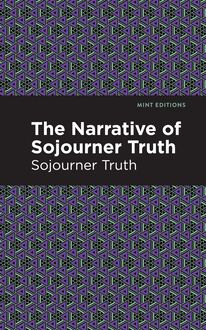-
 Univers
Univers
-
 Ebooks
Ebooks
-
 Livres audio
Livres audio
-
 Presse
Presse
-
 Podcasts
Podcasts
-
 BD
BD
-
 Documents
Documents
-
- Cours
- Révisions
- Ressources pédagogiques
- Sciences de l’éducation
- Manuels scolaires
- Langues
- Travaux de classe
- Annales de BEP
- Etudes supérieures
- Maternelle et primaire
- Fiches de lecture
- Orientation scolaire
- Méthodologie
- Corrigés de devoir
- Annales d’examens et concours
- Annales du bac
- Annales du brevet
- Rapports de stage
La lecture à portée de main
Vous pourrez modifier la taille du texte de cet ouvrage
Découvre YouScribe en t'inscrivant gratuitement
Je m'inscrisDécouvre YouScribe en t'inscrivant gratuitement
Je m'inscrisEn savoir plus
Vous pourrez modifier la taille du texte de cet ouvrage
En savoir plus

Description
Paul Laurence Dunbar: Poet Laureate of the Negro Race (1914) is a pamphlet on American poet Paul Laurence Dunbar. Published nearly a decade after Dunbar’s untimely death, Paul Laurence Dunbar: Poet Laureate of the Negro Race contains three essays on his life, his legacy, and his importance to American literature. Born in Dayton, Ohio, Dunbar was the son of parents who were emancipated from slavery in Kentucky during the American Civil War. In 1893, he published Oak and Ivy, a debut collection of poetry blending traditional verse and poems written in dialect. Over the next decade, Dunbar wrote ten more books of poetry, four collections of short stories, four novels, a musical, and a play. In his brief career, Dunbar became a respected advocate for civil rights, participating in meetings and helping to found the American Negro Academy. His lyrics for In Dahomey (1903) formed the centerpiece to the first musical written and performed by African Americans on Broadway, and many of his essays and poems appeared in the nation’s leading publications, including Harper’s Weekly and the Saturday Evening Post. Diagnosed with tuberculosis in 1900, however, Dunbar’s health steadily declined in his final years, leading to his death at the age of thirty-three while at the height of his career. Alice Dunbar-Nelson, in her essay, reflects on the man her husband was, a “true poet” who “reached out and groped for the bigness of the out-of-doors, divining all that he was afterwards to see.” In his piece, classical scholar William S. Scarborough argues for Dunbar’s importance to African American history as “the first among ten million,” as a man who “did not inherit, [but] originated.” To close the collection, Reverdy C. Ransom briefly eulogizes a poet whose loss was a blow to a people and a nation, whose name must be spoken in the same breath as Wheatley, Browning, Shelley, Burns, Keats, and Poe. More than anything, Paul Laurence Dunbar: Poet Laureate of the Negro Race cements his reputation as an artist with a powerful vision of faith and perseverance who sought to capture and examine the diversity of the African American experience. With a beautifully designed cover and professionally typeset manuscript, this edition of Paul Laurence Dunbar: Poet Laureate of the Negro Race is a classic of African American literature reimagined for modern readers.
Sujets
Informations
| Publié par | Mint Editions |
| Date de parution | 16 novembre 2021 |
| Nombre de lectures | 0 |
| EAN13 | 9781513223339 |
| Langue | English |
| Poids de l'ouvrage | 2 Mo |
Informations légales : prix de location à la page 0,0250€. Cette information est donnée uniquement à titre indicatif conformément à la législation en vigueur.
Extrait
Paul Laurence Dunbar
Poet Laureate of the Negro Race
Alice Dunbar Nelson, William S. Scarborough and Reverdy C. Ransom
Paul Laurence Dunbar: Poet Laureate of the Negro Race was first published in 1914.
This edition published by Mint Editions 2021.
ISBN 9781513224930 | E-ISBN 9781513223339
Published by Mint Editions ®
MintEditionBooks.com
Publishing Director: Jennifer Newens
Design & Production: Rachel Lopez Metzger
Project Manager: Micaela Clark
Typesetting: Westchester Publishing Services
C ONTENTS T HE P OET AND H IS S ONG Alice Dunbar Nelson T HE P OET L AUREATE OF THE N EGRO R ACE William S. Scarborough P AUL L AURENCE D UNBAR Reverdy C. Ransom
T HE P OET AND H IS S ONG
Alice Dunbar Nelson
“ O ur notions upon the subject of Biography,” says Carlyle, “may perhaps appear extravagant; but if an individual is really of consequence enough to have his life and character for public remembrance, we have always been of opinion that the public ought to be made acquainted with all the inward springs and relations of his character. How did the world and the man’s life, from his particular position, represent themselves to his mind? How did coexisting circumstances modify him from without; how did he modify these from within? With what endeavors and what efficacy rule over them; with what resistance and what suffering sink under them? … Few individuals, indeed, can deserve such a study; and many lives will be written, and, for the gratification of innocent curiosity, ought to be written, and read and forgotten, which are not, in this sense, biographies .”
Thus Carlyle. It would seem then, that if one must write about a poet, the world would wish to know how and in what manner the great phenomena of Nature impressed him, for Nature is the mother of all poets and there can be no true poetry unless inspired deeply by the external world which men do not touch. If the poet was an urban child, if the wonder of star-filled nights, the mystery of the sea, the beauty of sunrise and sunset, the freshness of dewy morns, and the warm scent of the upturned sod filled him with no rapture, then he was no true poet, howsoever he rhymed. So if one wishes to get a correct idea of any poet whatever, he must delve beneath the mere sordid facts of life and its happenings; of so many volumes published in such and such a time; of the influence upon him of this or that author or school of poetry; of the friends who took up his time, or gave him inspiration, and, above all, one must see what the love of Nature has done for the poet.
Mere looking into the printed words may not always do this. Who knows what heart-full of suggestion may lie in one expression? Who can tell in how much one word may be, as Higginson has expressed it, “palaces to dwell in,” “years of crowded passion in a phrase,” “half a life concentrated in a sentence?” To the banal mind a phrase may be nothing but a sweet rhythm of language, a well-turned, well-chosen expression. To the one who may have had the chance of communion with the creative mind, ere it expressed its longings in words, the phrase may be all pregnant with suggestion.
Your true poet is a child of Nature and lies close to the great Mother-heart. Even though he were born in the city, where his outlook on trees and fields is an incidental and sporadic occurrence in his life, he senses the divine heart pulsing beneath all things, and when he is finally brought face to face with the wonders of out-of-doors, untouched by the desecrating hand of man, he bursts forth into song, released from the conventionalities of other men’s verse.
This was true of Paul Dunbar. He was a child of the city, a small city, true, where Nature was not so ruthlessly crushed away from the lives of men. There were trees and flowers near home, and a never-to-be-forgotten mill-race, which swirled through all his dreams of boyhood and manhood. Like the true poet that he was, he reached out and groped for the bigness of out-of-doors, divining all that he was afterwards to see, and in his earlier verse expressing his intuitions, rather than his observations.
Love of nature was there, but the power to express this love was not. Instead, he harked back to the feeling of the race, and intuitively put their aspirations into song. Tennyson and Lowell meant much to him, because they had expressed his yearnings for the natural world, and his soul yearned toward their verse. The exquisite line, “When cows come home along the bars—” how much of the English poet went into that line, and how much of the reminiscences of the earlier life of his family? More of the former, he always confessed.
Children love “The Seedling.” It is good for them who are being initiated, city-wise, into the mysteries of planting and growth. It is scientific, without being technical—it is Tennyson’s “Flower in the crannied wall,” Americanized, brought down to the minds of little folks. The poet loved Tennyson, he walked with him in his earlier years, he confessed his indebtedness to him in his later days; he always praised him, and defended him hotly against the accusation of too much mere academic phrasing.
In the poem “Preparation” we see more of this groping toward the light; the urban child trying to throw off the meretriciousness of city life. Say what you will, or what Mr. Howells wills, about the “feeling the Negro life esthetically, and expressing it lyrically,” it was in the pure English poems that the poet expressed himself . He may have expressed his race in the dialect poems; they were to him the side issues of his work, the overflowing of a life apart from his dearest dreams. His deepest sorrow he told in “The Poet.”
He sang of life serenely sweet,
With now and then a deeper note.
From some high peak, nigh, yet remote,
He voiced the world’s absorbing heat.
He sang of love when earth was young,
And love itself, was in its lays,
But, ah, the world, it turned to praise
A jingle in a broken tongues.
This is a digression. “Preparation” is contemporaneous with “Discovered” and “Delinquent,” but in “the latter poems, he is feeling his way to make the laughter that the world will like; in the former, he is feeling his way to that true upward expression of the best in him. “A little bird sits in the nest and sings” is too much of Lowell to be true, “But the note is a prelude to better things,” reflecting as in solution the thought of the “Vision of Sir L à kunfal.” Our poet cast the poem aside as a thing of no worth, nor is it, except as it glimpses a bit of the soul within, like Lowell’s clod “reaching up to a soul in grass and flowers.”
Then came the experience on the lake. It was a never-to-be-forgotten summer. Opportunity and youth combined with poetry and the unsuspected beauty of the inland sea. Nature burst upon him with a surge.
-
 Univers
Univers
-
 Ebooks
Ebooks
-
 Livres audio
Livres audio
-
 Presse
Presse
-
 Podcasts
Podcasts
-
 BD
BD
-
 Documents
Documents
-
Jeunesse
-
Littérature
-
Ressources professionnelles
-
Santé et bien-être
-
Savoirs
-
Education
-
Loisirs et hobbies
-
Art, musique et cinéma
-
Actualité et débat de société
-
Jeunesse
-
Littérature
-
Ressources professionnelles
-
Santé et bien-être
-
Savoirs
-
Education
-
Loisirs et hobbies
-
Art, musique et cinéma
-
Actualité et débat de société
-
Actualités
-
Lifestyle
-
Presse jeunesse
-
Presse professionnelle
-
Pratique
-
Presse sportive
-
Presse internationale
-
Culture & Médias
-
Action et Aventures
-
Science-fiction et Fantasy
-
Société
-
Jeunesse
-
Littérature
-
Ressources professionnelles
-
Santé et bien-être
-
Savoirs
-
Education
-
Loisirs et hobbies
-
Art, musique et cinéma
-
Actualité et débat de société
- Cours
- Révisions
- Ressources pédagogiques
- Sciences de l’éducation
- Manuels scolaires
- Langues
- Travaux de classe
- Annales de BEP
- Etudes supérieures
- Maternelle et primaire
- Fiches de lecture
- Orientation scolaire
- Méthodologie
- Corrigés de devoir
- Annales d’examens et concours
- Annales du bac
- Annales du brevet
- Rapports de stage
